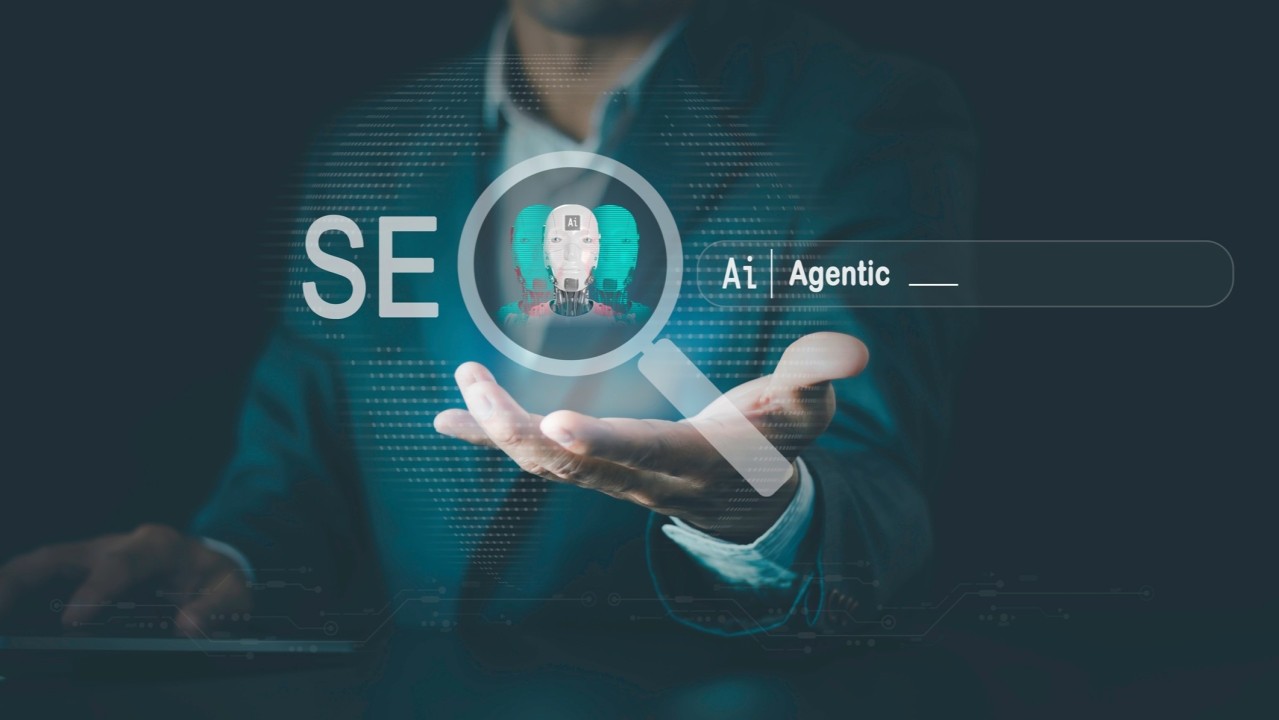News
SEO in the Age of AI: What You Need to Know for 2024
The digital landscape is in a constant state of flux, with new technologies and methodologies continually reshaping how businesses operate online. One of the most significant shifts in recent years has been the integration of artificial intelligence (AI) and machine learning into search engine optimisation (SEO). As we approach 2024, understanding how these technologies influence SEO strategies is crucial for businesses aiming to maintain or improve their online visibility.
AI’s role in SEO has evolved rapidly, transforming from simple algorithms to sophisticated systems capable of understanding and predicting user behaviour. This shift is particularly evident with the advent of Google’s Search Generative Experience (SGE), which leverages AI to provide more personalised and relevant search results.
This article explores how AI and machine learning are reshaping SEO strategies, focusing on the implications for businesses in the UK and beyond.
The Evolution of AI in SEO
Early Days of SEO
SEO began as a relatively straightforward practice. Keywords were king, and the primary goal was to match search queries with relevant content. Early search engines relied heavily on keyword density and basic algorithms to rank websites. This approach, while effective at the time, led to widespread manipulation, such as keyword stuffing and low-quality content creation aimed solely at gaming the system.
The Rise of AI and Machine Learning
As search engines evolved, so did their algorithms. Google’s introduction of the Hummingbird update in 2013 marked a significant turning point. This update allowed Google to better understand the context and intent behind search queries, moving beyond simple keyword matching. The incorporation of AI and machine learning into search algorithms accelerated with the introduction of RankBrain in 2015, a machine learning-based algorithm designed to help process and understand search queries.
RankBrain marked the beginning of a new era in SEO, one where AI and machine learning played an increasingly central role. These technologies enabled search engines to understand complex queries, interpret synonyms, and provide more relevant results based on user intent. This shift necessitated a change in SEO strategies, with a greater emphasis on content quality, user experience, and semantic search.
Google’s Search Generative Experience (SGE)
What is SGE?
Google’s Search Generative Experience (SGE) represents the latest evolution in AI-driven search technology. SGE leverages advanced AI models, including deep learning and natural language processing, to generate search results that are not only relevant but also highly personalised. This new approach aims to understand the nuances of user queries and deliver answers that align closely with the user’s intent and context.
How SGE Works
SGE works by analysing vast amounts of data to understand patterns and relationships between different pieces of information. This allows it to generate search results that are contextually relevant and personalised to the individual user. For instance, if a user searches for “best restaurants in London,” SGE considers factors such as the user’s location, previous search history, and personal preferences to provide tailored recommendations.
Implications for Businesses
The introduction of SGE has profound implications for businesses. Traditional SEO tactics that focused solely on keyword optimisation are no longer sufficient. Instead, businesses must adopt a more holistic approach that prioritises user experience, content quality, and personalisation. Here are some key areas where SGE impacts SEO strategies:
- Content Quality and Relevance: With SGE, content quality and relevance are more important than ever. AI algorithms are adept at recognising high-quality content that provides real value to users. Businesses must focus on creating comprehensive, well-researched, and engaging content that addresses user needs and queries effectively.
- User Experience: User experience is a critical factor in SEO. SGE considers factors such as page load speed, mobile-friendliness, and overall usability when ranking websites. Businesses must ensure their websites are optimised for a seamless user experience across all devices.
- Personalisation: SGE’s ability to personalise search results means businesses must consider individual user preferences and behaviours. This requires a deep understanding of the target audience and the creation of content that resonates with different segments of users.
The Role of AI in Content Creation and Optimisation
AI-Driven Content Creation
AI is not only reshaping how search engines deliver results but also how businesses create and optimise content. AI-powered tools can assist in generating high-quality content at scale, making it easier for businesses to maintain a consistent and engaging online presence. Some of the key benefits of AI-driven content creation include:
- Efficiency: AI can automate repetitive tasks, such as keyword research, content ideation, and even initial drafts. This allows content creators to focus on higher-level tasks, such as strategy and creativity.
- Consistency: AI tools can help maintain a consistent tone and style across different pieces of content, ensuring brand coherence and improving user experience.
- Data-Driven Insights: AI can analyse large datasets to identify trends, patterns, and gaps in existing content. This enables businesses to create content that is more likely to resonate with their target audience and rank well in search results.
Optimising Content for AI-Driven Search
To optimise content for AI-driven search engines like Google’s SGE, businesses must adopt a more nuanced approach. Here are some strategies to consider:
- Focus on User Intent: Understanding user intent is crucial for creating content that aligns with search queries. This involves analysing the types of questions users are asking and crafting content that provides clear and comprehensive answers.
- Semantic SEO: Semantic SEO involves optimising content around topics rather than specific keywords. This approach helps search engines understand the context and relationships between different pieces of content, improving the chances of ranking for a broader range of queries.
- Structured Data: Implementing structured data (schema markup) can help search engines understand the content on a page better. This can lead to enhanced search results, such as rich snippets, which can improve visibility and click-through rates.
Voice Search and AI
The Growth of Voice Search
Voice search has seen significant growth in recent years, driven by the widespread adoption of smart speakers and virtual assistants like Google Assistant, Amazon Alexa, and Apple’s Siri. According to recent statistics, nearly 50% of UK households are expected to own a smart speaker by 2024. This shift towards voice-activated search presents new challenges and opportunities for businesses.
Optimising for Voice Search
Voice search queries differ from traditional text-based searches in several ways. They tend to be longer, more conversational, and often phrased as questions. To optimise for voice search, businesses should consider the following strategies:
- Natural Language Processing (NLP): Content should be written in a natural, conversational tone that mirrors how people speak. This helps AI-powered voice assistants understand and interpret the content more effectively.
- Featured Snippets: Voice search often pulls answers from featured snippets, also known as position zero. Businesses should aim to provide clear, concise answers to common questions to increase the likelihood of being featured.
- Local SEO: Many voice searches are location-based, such as “near me” queries. Optimising for local SEO, including claiming and updating Google My Business listings, can help businesses capture this traffic.
AI and Predictive Analytics
The Power of Predictive Analytics
Predictive analytics involves using historical data, machine learning, and AI to predict future outcomes. In the context of SEO, predictive analytics can provide valuable insights into user behaviour, search trends, and content performance. This enables businesses to make data-driven decisions and stay ahead of the competition.
Implementing Predictive Analytics in SEO
Here are some ways businesses can leverage predictive analytics to enhance their SEO strategies:
- Trend Analysis: By analysing historical search data, businesses can identify emerging trends and topics. This allows them to create content that addresses these trends proactively, improving their chances of ranking well for relevant queries.
- User Behaviour Insights: Predictive analytics can provide insights into how users interact with a website, including which pages they visit, how long they stay, and what actions they take. This information can inform content and UX improvements to enhance user engagement and retention.
- Performance Forecasting: Predictive analytics can help businesses forecast the potential performance of their content. By understanding which types of content are likely to perform well, businesses can allocate resources more effectively and optimise their content strategy.
Ethical Considerations and Challenges
Ethical Use of AI in SEO
While AI offers numerous benefits for SEO, it also raises ethical considerations. Businesses must ensure they use AI responsibly and transparently. Some key ethical considerations include:
- Bias and Fairness: AI algorithms can sometimes perpetuate biases present in the data they are trained on. Businesses must be vigilant in ensuring their AI tools are fair and unbiased, providing equal opportunities for all users.
- Privacy and Data Security: Collecting and analysing user data is a core component of AI-driven SEO. However, businesses must prioritise user privacy and comply with data protection regulations, such as the General Data Protection Regulation (GDPR) in the UK.
- Transparency: Businesses should be transparent about their use of AI, particularly when it comes to content creation and personalisation. This helps build trust with users and ensures ethical practices.
Challenges of AI in SEO
Despite its many advantages, AI also presents several challenges for SEO professionals:
- Complexity: AI algorithms are often complex and difficult to understand. This can make it challenging for businesses to implement and optimise AI-driven SEO strategies effectively.
- Constant Evolution: AI technology is constantly evolving, with new updates and advancements being made regularly. Staying up-to-date with these changes and adapting strategies accordingly can be a significant challenge.
- Resource Intensive: Implementing AI-driven SEO strategies can be resource-intensive, requiring significant investments in technology, data, and expertise. Smaller businesses may struggle to compete with larger organisations with more resources at their disposal.
Future Trends in AI and SEO
AI-Driven Personalisation
Personalisation will continue to be a major trend in AI-driven SEO. As AI algorithms become more sophisticated, they will be able to deliver even more personalised and relevant search results. Businesses will need to invest in understanding their customers on a deeper level and creating content that speaks directly to individual preferences and needs.
Voice and Visual Search
Voice and visual search will play an increasingly important role in SEO. AI-powered voice assistants and image recognition technologies are becoming more prevalent, and businesses must adapt their strategies to cater to these new search formats. This includes optimising content for voice queries and ensuring images are properly tagged and optimised for visual search.
Integration of AI Across Digital Marketing
AI will continue to integrate across all aspects of digital marketing, not just SEO. From email marketing and social media to paid advertising and customer service, AI will enable businesses to deliver more targeted and effective marketing campaigns. SEO professionals will need to collaborate with other departments to create a cohesive and AI-driven digital marketing strategy.
AI and machine learning are undeniably reshaping the landscape of SEO. Businesses that embrace these technologies and adapt their strategies accordingly will be well-positioned to succeed in this new era. From improving content quality and user experience to leveraging predictive analytics and personalisation, AI offers numerous opportunities for businesses to enhance their SEO efforts.
However, it is essential to approach AI-driven SEO with a focus on ethical practices and transparency. By doing so, businesses can build trust with their audience and ensure long-term success. The integration of AI in SEO is not without its challenges, but with careful planning and execution, businesses can navigate these complexities and thrive in the age of AI.
In summary, SEO in the age of AI requires a holistic approach that prioritises user experience, content quality, and personalisation. By understanding and leveraging the power of AI, businesses can stay ahead of the competition and achieve their digital marketing goals in 2024 and beyond.





The Ultimate Social Media Guide
With the ever-growing power of social media, we use the latest techniques, video, and animation software to craft eye-catching social media assets that make your brand pop. Our designers, wielding Adobe Creative tools, create distinctive animations and graphics to illuminate your brand story and highlight your products or services. Want a unique design? No problem – we also offer bespoke designs to match your brand aesthetic.